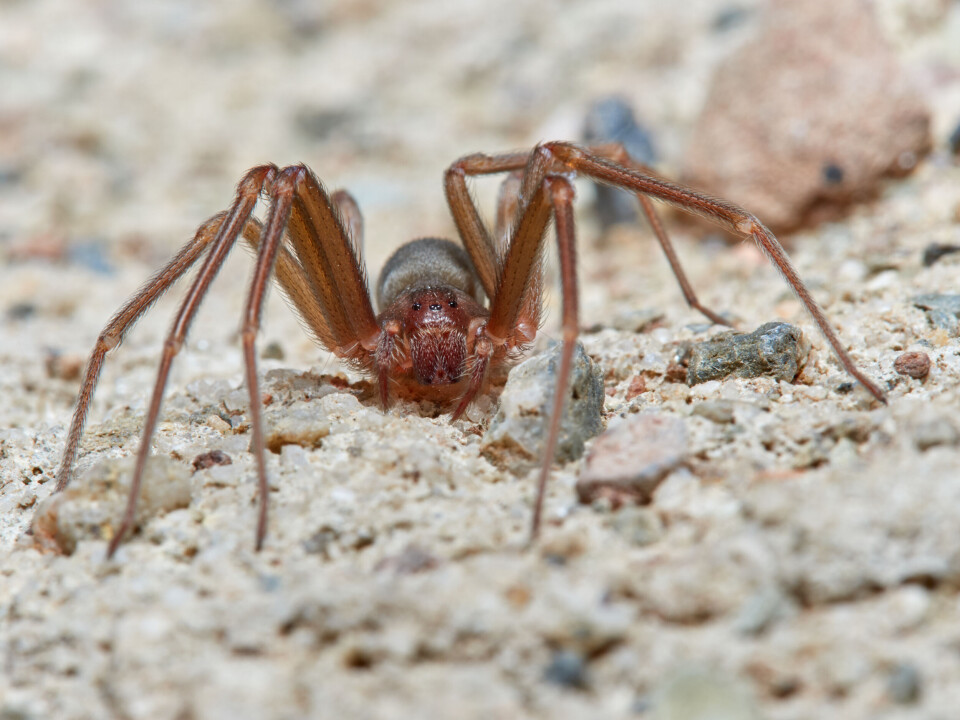Expert casts doubt on claims bites from French 'violin' spider killed two
'No deaths from a spider bite' have ever been recorded in France
The Mediterranean recluse spider is found throughout France
Macronatura.es / Shutterstock
A spider expert has cast doubt on reports that a species commonly found in France might have killed two people in Italy.
The deaths were alleged to be due to ‘violin’ spiders, also known as Mediterranean recluse spiders, according to reports in Italian newspaper Il Messaggero.
Dr Christine Rollard, an arachnologist at the Muséum national d’histoire naturelle de Paris, said the stories might be “fake news”.
“These cases have absolutely not been verified as linked to Loxosceles rufescens [the spider’s Latin name]. No spiders have been discovered in either case.
“There has simply been a reaction on the skin and a sort of burn mark, which medical professionals indicated can be linked to Mediterranean recluse spiders, but in no way have they been definitively linked.”
The spider was also blamed for a recent case in the south of France where a teenager felt a pain in his ankle when coming home on his scooter from a day at the beach.
He later had to have dead skin scraped out to a depth of 1.5cm, after the area become necrotic.
Read more: 1.5cm hole in leg: Teenager bitten by ‘violin’ spider in south of France
Spider bites rarely pierce skin
The spider can also be found in other parts of France and worldwide in many countries including the US.
The alternative name ‘violin’ spider comes from a mark on its back said to look like the instrument.
Dr Rollard said the species has weak fangs and the reported location of the bites – on calves and ankles where the skin is taut – mean it is unlikely to pierce the skin.
“I am extremely sceptical. Of course, there can be examples of bites with necrosis [death of cells in an organ or tissue] which need to be treated to avoid worsening symptoms.
“But a death because of a spider bite? No, that simply does not happen. Loxosceles rufescens
spiders do not kill humans.”
The spiders’ bodies measure about one centimetre in mength.
Their bites are difficult to recognise because they rarely leave a mark.
“While they are venomous, the spiders require that venom to feed themselves, so will rarely inject it, even in the unlikely event they do bite someone.
“People in the south have been living alongside them for years without issues.”
Dr Rollard added that their populations are not increasing, they are usually discreet, and can mostly be found outside.
There is no serious danger from any native French spider, aside from poorly treated necrosis, she said.
“We also have black widow spiders in France but there has never been a death from them. In fact, there has never been a death caused by any spider in France.
Only 15 to 20 deaths linked to spider bites happen worldwide per year, and most occur in places where medical care is not readily available, or they affect people with weakened immune systems, she said.
Read more: Which are the most dangerous animals in France and where are they?




























